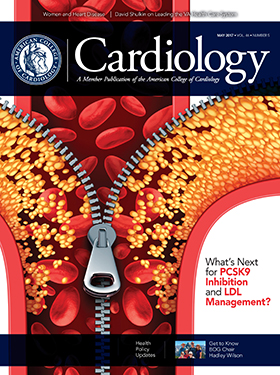After approving a new specialty designation for “Advanced Heart Failure (HF) and Transplant Cardiology” at the end of 2016, the Centers for Medicare and Medicaid Services (CMS) has completed the necessary steps to create the code (C7) and make it available for physicians to use in their provider enrollment. Read More >>>
The new code, which will take effect on Oct. 1, will allow CMS to distinguish HF and transplant cardiologists from clinical cardiologists when billing for Medicare services. Previously, no mechanism existed for CMS to accurately identify this category of physician for quality and payment programs. Some local Medicare carriers have denied claims in the past, citing duplicate billing, when a cardiologist and an HF specialist from the same practice have billed for patient evaluation services.
 "This is a critical milestone for advanced heart failure and cardiac transplant specialists, validating their critical role and contribution to patient care." — Biykem Bozkurt, MD, PhD, FACC
"This is a critical milestone for advanced heart failure and cardiac transplant specialists, validating their critical role and contribution to patient care." — Biykem Bozkurt, MD, PhD, FACC
HF certification from the American Board of Internal Medicine is not required to use the code. Any provider who selects a specialty code is attesting that they meet Federal and State requirements for the specialty and are “properly staffed, equipped and stocked (as applicable, based on the type of facility or organization, provider or supplier specialty, or the services or items being rendered) to furnish these items or services.”
“This is a critical milestone for advanced heart failure and cardiac transplant specialists, validating their critical role and contribution to patient care,” says Biykem Bozkurt, MD, PhD, FACC, chair of both the Heart Failure and Transplant Section Leadership Council and the ACCF/AHA Task Force on Clinical Data Standards. “We urge HF and cardiac transplant cardiologists to contact their administrators and billing staffs to enroll or update their specialty to reflect this new designation within 60 days of the implementation date.”
<<< Return to top
 Read the full May 2017 issue of Cardiology at ACC.org/Cardiology
Read the full May 2017 issue of Cardiology at ACC.org/Cardiology



 "This is a critical milestone for advanced heart failure and cardiac transplant specialists, validating their critical role and contribution to patient care."
"This is a critical milestone for advanced heart failure and cardiac transplant specialists, validating their critical role and contribution to patient care."